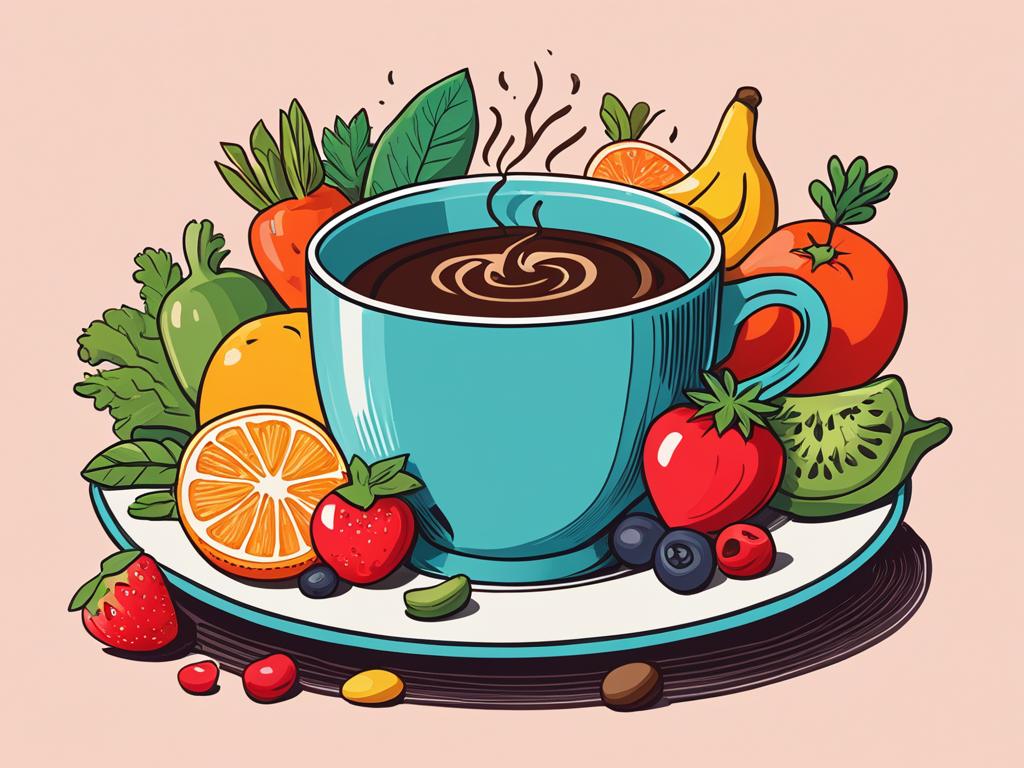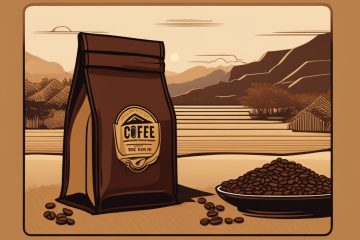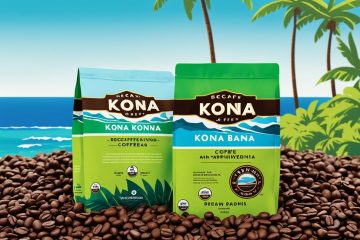Table of Contents Show
Decaf coffee is a popular choice for those who want to enjoy the taste of coffee without the caffeine. There are various methods used to remove caffeine from coffee beans, including direct solvent, indirect solvent, Swiss water, sugarcane, and carbon dioxide processes. Finding the right decaf coffee option is a matter of personal taste, as different brands and methods can affect the flavour profile. In our testing, we found the following decaf coffees to be among the best: Rave Coffee Swiss water decaf no. 11, Tunbridge Wells Coffee Roastery decaf coffee, Ozone Coffee el yalcon decaf, Monmouth Coffee Company finca la bolsa decaf, Batch decaf coffee subscription, Marks and Spencer gold decaf instant coffee, Grind decaf blend coffee, and Perky Blenders decaf. These coffees stood out for their taste, quality, and overall satisfaction among our coffee-tasting panel.
Key Takeaways:
- Decaf coffee provides the taste of coffee without the caffeine.
- There are various decaffeination methods used, including direct solvent, indirect solvent, Swiss water, sugarcane, and carbon dioxide processes.
- Personal taste plays a significant role in choosing the right decaf coffee.
- Rave Coffee, Tunbridge Wells Coffee Roastery, Ozone Coffee, Monmouth Coffee Company, Batch, Marks and Spencer, Grind, and Perky Blenders offer some of the best decaf coffees in terms of taste, quality, and customer satisfaction.
Why Choose Decaf?
There are several reasons why someone might choose decaf coffee. Some individuals have a sensitivity to caffeine and experience symptoms such as headaches, jitters, racing heartbeat, and anxiety. Others, such as pregnant or breastfeeding individuals, are advised to limit their caffeine intake for health reasons.
“Decaf coffee allows these individuals to still enjoy the taste and ritual of coffee without the stimulating effects of caffeine.”
Additionally, decaf coffee offers potential health benefits, including lower risk of certain health conditions and antioxidant properties. It’s important to note that decaf coffee still contains a small amount of caffeine, but the levels vary depending on the brand and method of decaffeination.
Decaf coffee provides a way to indulge in your coffee habit without the unwanted caffeine side effects.

- Reasons for drinking decaf coffee: Decaf coffee allows individuals with caffeine sensitivity to enjoy coffee without the negative side effects.
- Pregnancy and caffeine: Pregnant and breastfeeding individuals are advised to limit their caffeine intake, and decaf coffee provides them with an alternative.
- Health benefits of decaf coffee: Decaf coffee has lower risks of certain health conditions and contains antioxidants that may contribute to our overall health.
Lower Risk of Health Conditions
Decaf coffee has been found to be associated with a reduced risk of certain health conditions, such as type 2 diabetes, cardiovascular disease, and liver disease. Studies have shown that regular consumption of decaf coffee can have a protective effect against these conditions, thanks to its beneficial compounds.
Antioxidant Properties
Decaf coffee contains antioxidants, which are compounds that help protect our cells from damage caused by harmful molecules called free radicals. Antioxidants play a crucial role in maintaining our overall health and well-being.
Decaf coffee offers a way to enjoy the aroma, taste, and social aspect of coffee without worrying about the negative effects of caffeine. Whether you have caffeine sensitivity, are pregnant or breastfeeding, or simply want to reduce your caffeine intake, decaf coffee provides a satisfying alternative.
Decaf Coffee Decaffeination Methods
When it comes to decaf coffee, there are several decaffeination methods used to remove caffeine from coffee beans. Each method has its advantages and can affect the flavor profile of the decaf coffee.
Direct Solvent Process
The direct solvent process involves using chemical solvents, such as methylene chloride or ethyl acetate, to extract the caffeine from the beans. The solvents dissolve the caffeine, leaving behind the flavor compounds. The beans are then dried to remove any residual solvents. This method is efficient and widely used in the industry.
Indirect Solvent Process
In the indirect solvent process, the caffeine is removed using a combination of water and solvents. The coffee beans are soaked in water, which extracts the caffeine along with other compounds. Then, the water is treated with solvents to separate the caffeine from the liquid. Once the caffeine is removed, the liquid is returned to the beans to reabsorb the flavors.
Swiss Water Process
A popular natural decaffeination method is the Swiss water process. In this method, the coffee beans are soaked in hot water to extract the caffeine and flavor compounds. The resulting liquid, known as green coffee extract, is passed through activated charcoal filters that selectively trap the caffeine molecules while allowing the flavor compounds to pass through. The beans are then reabsorbed with the flavor-rich liquid, producing decaffeinated coffee with minimal loss of flavor.
Sugarcane Process
An innovative method for decaffeinating coffee is the sugarcane process. It uses a natural chemical derived from sugarcane, called ethyl acetate, to remove the caffeine. The ethyl acetate selectively binds to the caffeine molecules, which are then removed from the beans. This process is considered more environmentally friendly and produces decaf coffee with a clean flavor profile.
Carbon Dioxide Process
The carbon dioxide (CO2) process involves soaking the coffee beans in water to increase their moisture content. The beans are then placed in a high-pressure chamber with CO2, which acts as a solvent to extract the caffeine. The caffeine-laden CO2 is then evaporated, leaving behind decaffeinated coffee beans. This method preserves the flavor compounds and is often used to produce decaf coffee with a full-bodied taste.
Overall, the decaffeination method used can have a significant impact on the flavor and quality of decaf coffee. Whether you prefer a direct solvent, indirect solvent, Swiss water, sugarcane, or carbon dioxide processed decaf coffee, there are options available to suit your taste preferences.
Tips for Choosing Quality Decaf Coffee
When selecting the perfect decaf coffee, it’s essential to consider your preferred flavor profile. Some decaf coffees offer a rich and full-bodied taste, while others are lighter and more delicate in nature. Paying attention to the brand’s reputation and the method used for decaffeination is also crucial in making an informed choice.
Look for brands that utilize natural decaffeination processes like Swiss water or carbon dioxide methods. These processes maintain the coffee’s flavor integrity while removing the caffeine. By opting for brands that employ these methods, you can ensure a high-quality decaf coffee experience.
Additionally, take into account your preferred brewing method and select a coffee that is suitable for it. Whether you enjoy espresso, drip coffee, or French press, certain decaf coffees are specifically crafted to complement your chosen brewing technique. Choosing a coffee that is tailored to your preferred brewing method will enhance your overall coffee experience.
Don’t be afraid to experiment with different brands and flavors to find the decaf coffee that best suits your taste preferences. With a wide range of options available, you’re sure to discover a decaf coffee that satisfies your palate and delivers a delightful caffeine-free indulgence.
Conclusion
Choosing quality decaf coffee allows you to enjoy the taste and experience of coffee without the caffeine. We’ve highlighted some of the best decaf coffees available on the market, based on taste, quality, and customer satisfaction. Whether you prefer a medium roast, full-bodied flavor, or instant coffee, there are options to suit every preference. With the right selection, you can enjoy a delicious cup of coffee without the caffeine buzz.
Our top picks for the best decaf coffee include Rave Coffee Swiss water decaf no. 11, Tunbridge Wells Coffee Roastery decaf coffee, Ozone Coffee el yalcon decaf, Monmouth Coffee Company finca la bolsa decaf, Batch decaf coffee subscription, Marks and Spencer gold decaf instant coffee, Grind decaf blend coffee, and Perky Blenders decaf. These coffees stood out for their exceptional taste, quality, and overall satisfaction among our coffee-tasting panel.
When choosing your decaf coffee, remember to consider your flavor profile, brand reputation, and brewing method. Whether you prefer a strong and robust flavor or a smooth and mellow taste, there is a decaf coffee that will satisfy your cravings. So why not indulge in a cup of the best decaf coffee and enjoy the rich flavor and aroma without any caffeine?
FAQ
What is decaf coffee?
Decaf coffee is a type of coffee that has had the caffeine content reduced. It allows people to enjoy the taste and ritual of coffee without the stimulating effects of caffeine.
How is caffeine removed from coffee beans?
There are several methods used to decaffeinate coffee beans, including direct solvent, indirect solvent, Swiss water, sugarcane, and carbon dioxide processes. Each method extracts the caffeine from the beans differently, resulting in variations in flavor profiles.
Why do people choose decaf coffee?
People choose decaf coffee for various reasons, including sensitivity to caffeine, health considerations during pregnancy or breastfeeding, and personal preference. Decaf coffee also offers potential health benefits and antioxidant properties.
How much caffeine does decaf coffee contain?
Decaf coffee does contain a small amount of caffeine, but the levels vary depending on the brand and method of decaffeination. It is generally much lower in caffeine compared to regular coffee.
What should I look for when choosing quality decaf coffee?
When choosing quality decaf coffee, consider your preferred flavor profile, brand reputation, and the decaffeination method used. Look for brands that use natural decaffeination processes, such as Swiss water or carbon dioxide, and choose a coffee that suits your preferred brewing method.




